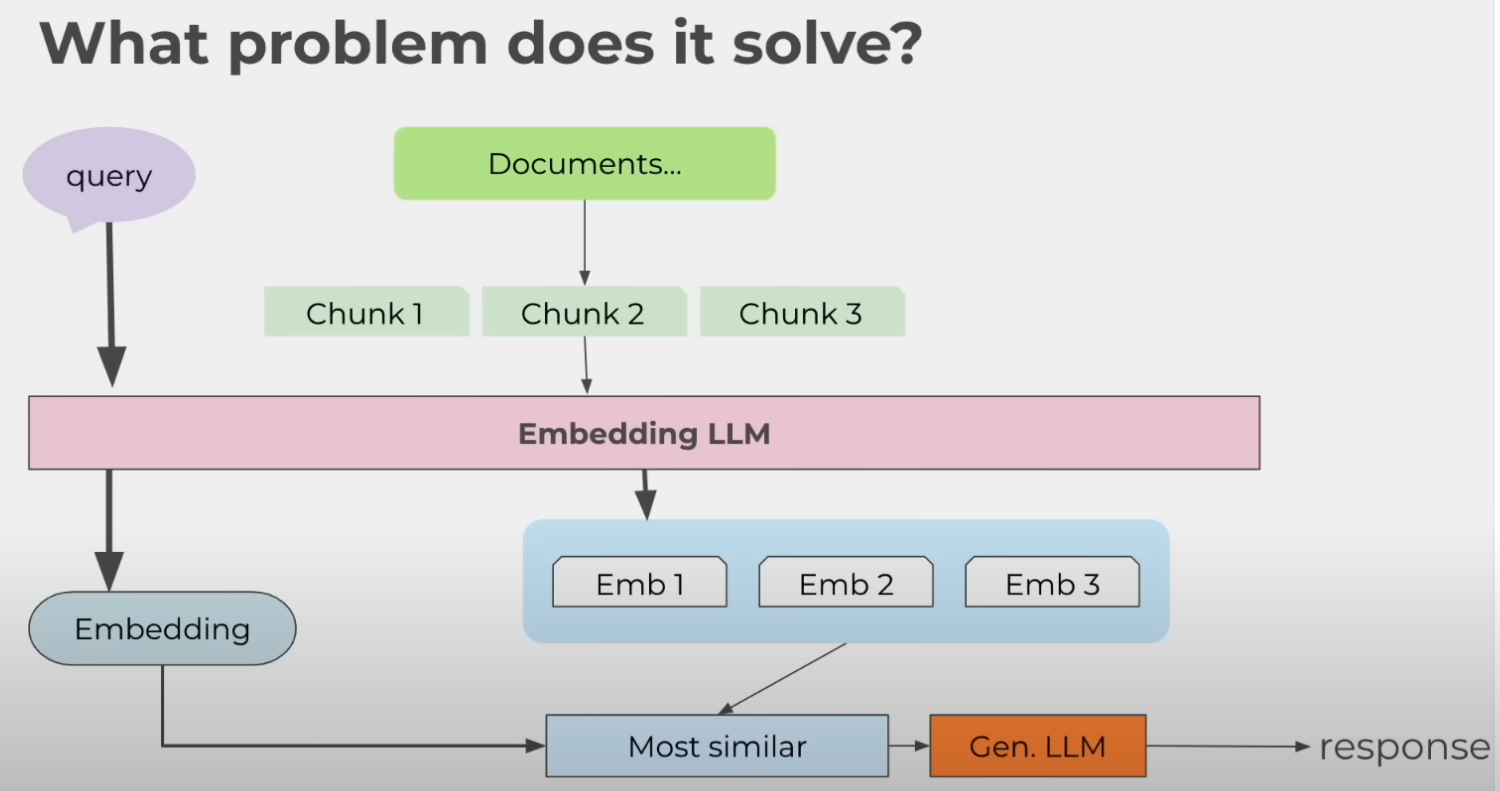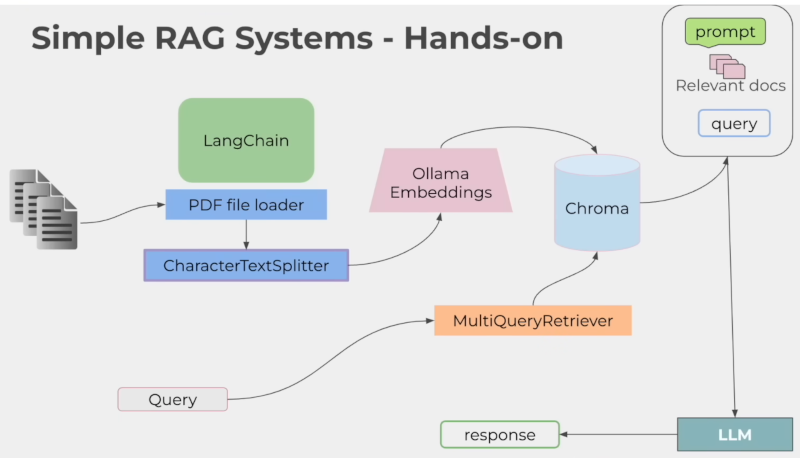LLM and Ollama
Introduction
This is a page about ollama and you guest it LLM. I have downloaded several models and got a UI going over them locally. The plan is to build something like Claude desktop in Typescript to Golang. First some theory in Python from here. Here is the problem I am trying to solve.

Using the Remote Ollama
You can connect by setting the host with
export OLLAMA_HOST=192.blah.blah.blah
Now you can use with
ollama run llama3.2:latest
Taking lamma3.2b as an example
Model Info
- Architecture:llama Who made it
- Parameters:3.2B - Means 3.2 billion parameters (bigger requires more resources)
- Context Length:131072 - Number of tokens it can injest
- Embedding Length:3072 - Size of the vector for each token in the input text
- Quantization:Q4_K_M - Too complex to explain
You can customize the mode with a Modelfile and running create with ollama. For example
FROM llama3.2
# set the temperature where higher is more creative
PARAMETER temperature 0.3
SYSTEM """
You are Bill, a very smart assistant who answers questions succintly and informatively
"""Now we can create a copy with
ollama create bill -f ./ModelfileRest API Interaction
So we can send questions to llama using the the rest endpoint to 11434
curl http://192.blah.blah.blah:11434/api/generate -d '{
"model": "llama3.2",
"prompt": "Why is the sky blue?",
"stream": false
}'
We can chat by changing the endpoint and the format by adding format in the playload
curl http://192.blah.blah.blah:11434/api/chat -d '{
"model": "llama3.2",
"prompt": "Why is the sky blue?",
"stream": false,
"format": "json"
}'
All of the options are at here
UI Based Client Msty
Seems that Msty was a good choice. You specify a provide and you can then put in 192.blah.blah.blah:11434. It support deepseek and other provider too.
RAG Retrieval-Augmented Generation
This allows us to converse with out own documents/data and solves the bizarre statement LLMs produce
- LLM
- Document Corpus (Knowledge Base)
- Document Embeddings
- Vecto Store (Vector DB, Faiss, Pinecone, Chromadb)
- Retrieval Mechanism
LangChain is a tool to make this easier
- Loading and parsing documents
- Splitting documents
- Generating embeddings
- Provides a unified abstraction for working with LLMs and Apps
This is referred to as a simple RAG system. We shall see

This was a bit of strange experience. The code is at here but really the thing consisted of the boxes in the diagram.
<syntaxhighlight lang="py">
- 1. Ingest PDF Files
- 2. Extract Text from PDF Files and split into small chunks
- 3. Send the chunks to the embedding model
- 4. Save the embeddings to a vector database
- 5. Perform similarity search on the vector database to find similar documents
- 6. retrieve the similar documents and present them to the user
- run pip install -r requirements.txt to install the required packages
from langchain_community.document_loaders import UnstructuredPDFLoader from langchain_community.document_loaders import OnlinePDFLoader
doc_path = "./data/BOI.pdf" model = "llama3.2"
- Local PDF file uploads
if doc_path:
loader = UnstructuredPDFLoader(file_path=doc_path)
data = loader.load()
print("done loading....")
else:
print("Upload a PDF file")
# Preview first page
content = data[0].page_content
- print(content[:100])
- ==== End of PDF Ingestion ====
- ==== Extract Text from PDF Files and Split into Small Chunks ====
from langchain_ollama import OllamaEmbeddings from langchain_text_splitters import RecursiveCharacterTextSplitter from langchain_community.vectorstores import Chroma
- Split and chunk
text_splitter = RecursiveCharacterTextSplitter(chunk_size=1200, chunk_overlap=300) chunks = text_splitter.split_documents(data) print("done splitting....")
- print(f"Number of chunks: {len(chunks)}")
- print(f"Example chunk: {chunks[0]}")
- ===== Add to vector database ===
import ollama
ollama.pull("nomic-embed-text")
vector_db = Chroma.from_documents(
documents=chunks, embedding=OllamaEmbeddings(model="nomic-embed-text"), collection_name="simple-rag",
) print("done adding to vector database....")
- === Retrieval ===
from langchain.prompts import ChatPromptTemplate, PromptTemplate from langchain_core.output_parsers import StrOutputParser
from langchain_ollama import ChatOllama
from langchain_core.runnables import RunnablePassthrough from langchain.retrievers.multi_query import MultiQueryRetriever
- set up our model to use
llm = ChatOllama(model=model)
- a simple technique to generate multiple questions from a single question and then retrieve documents
- based on those questions, getting the best of both worlds.
QUERY_PROMPT = PromptTemplate(
input_variables=["question"],
template="""You are an AI language model assistant. Your task is to generate five
different versions of the given user question to retrieve relevant documents from
a vector database. By generating multiple perspectives on the user question, your
goal is to help the user overcome some of the limitations of the distance-based
similarity search. Provide these alternative questions separated by newlines.
Original question: {question}""",
)
retriever = MultiQueryRetriever.from_llm(
vector_db.as_retriever(), llm, prompt=QUERY_PROMPT
)
- RAG prompt
template = """Answer the question based ONLY on the following context: {context} Question: {question} """
prompt = ChatPromptTemplate.from_template(template)
chain = (
{"context": retriever, "question": RunnablePassthrough()}
| prompt
| llm
| StrOutputParser()
)
- res = chain.invoke(input=("what is the document about?",))
- res = chain.invoke(
- input=("what are the main points as a business owner I should be aware of?",)
- )
res = chain.invoke(input=("how to report BOI?",))
print(res) </syntaxrhighlight>